[ad_1]
Known as a birder’s paradise, city folk have been drawn to Wakkerstroom for its country charm since the 90s. With no traffic lights and honest-to-goodness people, you might just become a regular, too.
Words & photographs by Mia Louw
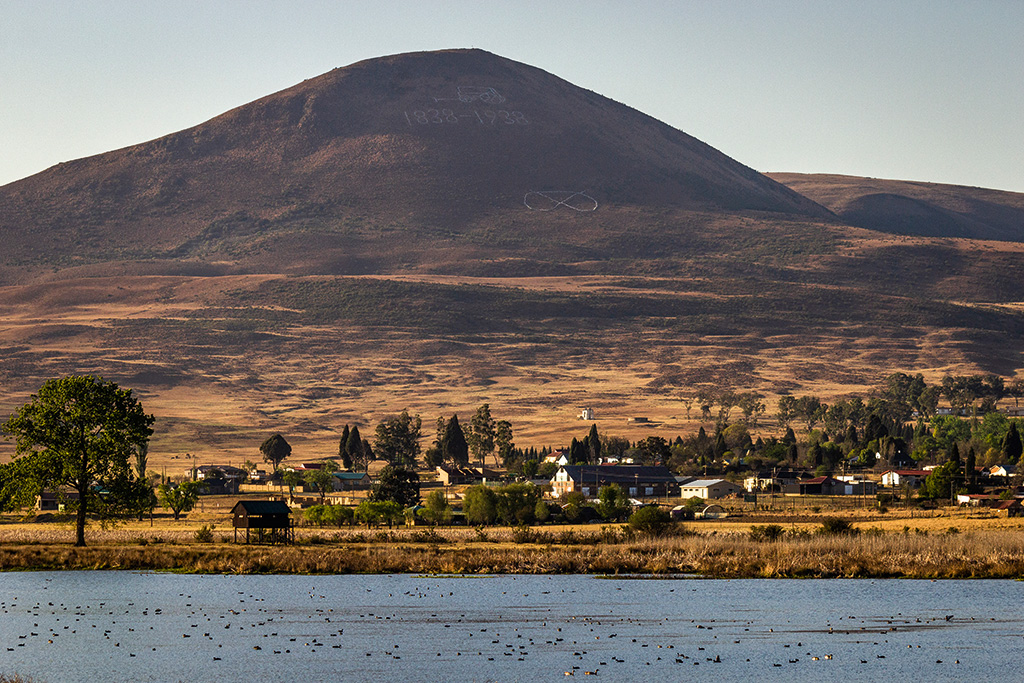
Ossewakop towers above the town, while the Clive Beck Memorial Hide presides over the Wakkerstroom wetland and river. The name Wakkerstroom (meaning ‘lively stream’) comes originally from the isiZulu name, uThaka. Image credit: Mia Louw
If I had to choose a place for my vehicle to break down, Wakkerstroom would be top of the list. My car’s clutch gave out an hour into my first visit to this little village in Mpumalanga’s highlands. Soon, I found Martin Niemandt, a mechanic who works from home. Leon Rieger quickly towed my car, and his wife, Christa, offered me a cup of condensed milk tea. Christa also handed me the keys to her little Toyota RAV4 after knowing me for less than the time it took to gulp down that sweet, delicious drink. Good Samaritans, salt of the earth, saintly … call them what you like. ‘Extended family’ is how Kristi Garland describes the town. ‘That’s how we roll here. When you need help, there will be ten people at your driveway.’
Kristi manages the BirdLife SA Tourism and Education Centre outside of town. It’s surrounded by 114 hectares of grassland adjoining the world-renowned Wakkerstroom wetland. Due to growing interest from both local and international birders, the town experienced a tourism boom in the 1990s. The area offers the best of South Africa’s grassland endemic birds and wetland and forest species.
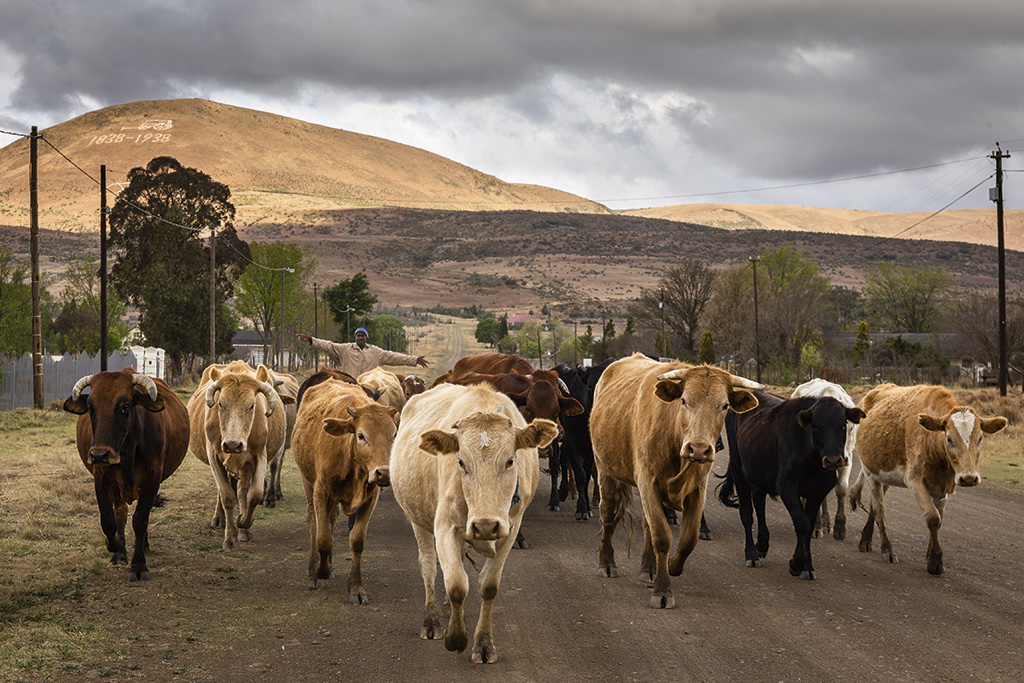
Cattle are a common sight in town, with Ossewakop as a backdrop. The ox wagon on the hillside celebrates the centennial of the Great Trek, while the ‘knot’ (partially obscured by the tree) is the emblem of the North Staffordshire Regiment, which was stationed here during the Anglo-Boer War. Image credit: Mia Louw
Willow trees with long, tousled branches swaying in the wind dot the village. Dirt lanes divide the town’s large residential stands, enclosed with low (and sometimes rickety) fencing. Dogs, cats, goats, and cows roam the gardens inside these expansive yards. At Pot & Gieter Guesthouse, where I stayed, I watched a young foal named Pegasus chasing a flock of guinea fowl on his wobbly legs.
Driving into town via Van Riebeeck Street, you are met with a line of quaint buildings – some dating back to the 19th century. A lengthy and colourful stoep stretches down Badenhorst Street, the welcoming front porch of a row of small businesses (decor and clothing shops, galleries, restaurants, and a bakery) decorated with potted plants and signboards advertising craft beer.
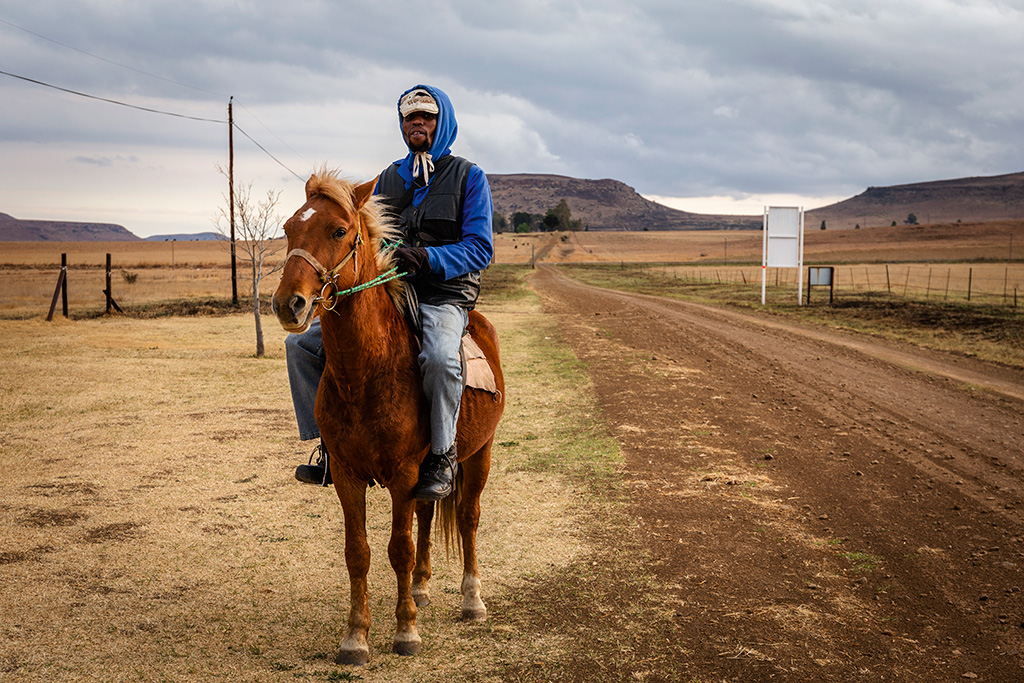
Bheki Mazibuko rides past BirdLife SA’s office towards De Oude Stasie, the pub in the old railway station. Image credit: Mia Louw
I signed up to make bread with Jeff Lawrence at Country Bread. ‘It isn’t the recipe. It’s all about the technique,’ he said while shaping dough in bannetons (proofing baskets). He’d been up since 4 am preparing the dough, which needs to mature for hours. At 9 am, the golden brown loaves (his gluten light option) were ready. He also makes olive ciabatta for a local restaurant and sourdough spelt loaves.
Beginners usually start with shaping techniques. ‘When I do a baguette course, we make six breads. The shaping is complex – if you just do one, you’ll never remember it,’ he explained. ‘My courses include notes, ingredients, equipment, lunch, and too much wine!’ Another great spot to indulge in a glass of vino (and elegant, French-inspired cuisine) is Thyme Out on Van Riebeeck Street. ‘Wakkerstroom is a little drinking village with a birding problem,’ front-of-house Jill Robertson joked as she handed me the extensive wine list. Locals hang out at the old railway station, now a pub and grub with a priceless view over the wetland and village. While I was seated on the deck, the pub dog bolted after a herd of cattle trotting past on the dirt road, completing a perfect cameo of the platteland in spring.
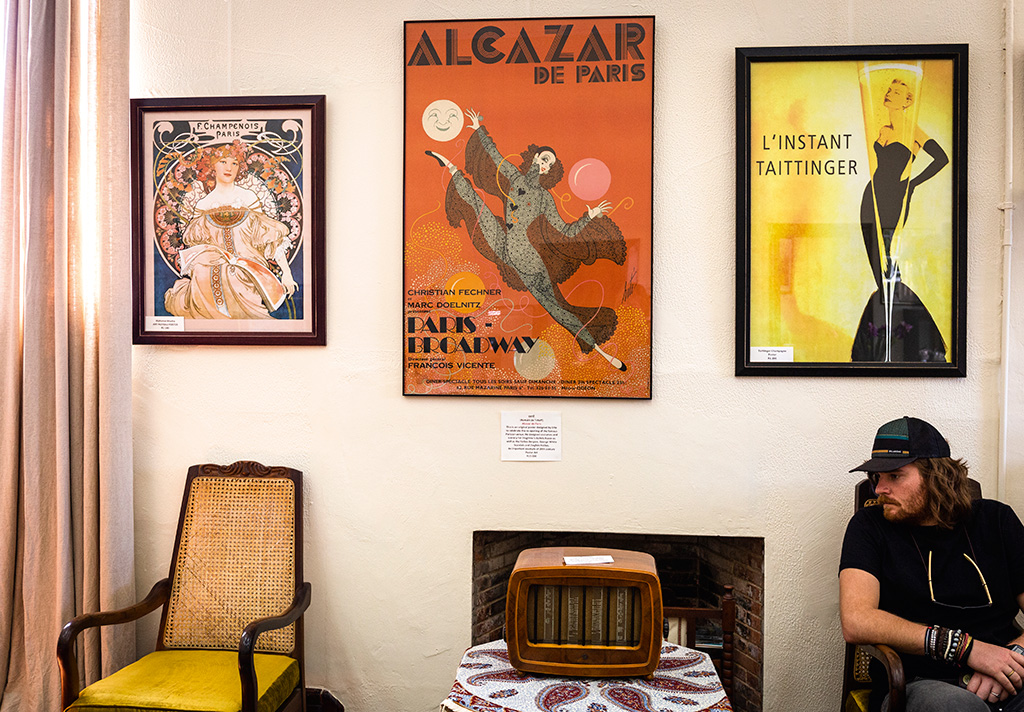
Hancu Louw eyes some old-school tech at The Bank Gallery, which has a great vintage prints and antiques collection. Image credit: Mia Louw
Before the sun slipped behind the mountains, I headed to the Wings Over Wetlands and Clive Beck Memorial bird hides to catch the last light. Kristi had urged me to visit them – they are on the half of the wetland, which consistently has water. There’s a shaded picnic site near the Paul Kruger Bridge and a wooden walkway leading you along the water, past drooping willows and poplars reaching up to the sky. I saw flocks of yellow-billed ducks, red-knobbed coots, and common and lesser moorhens foraging for food.
The town’s motto is Inter Flumina et Montes, which means ‘between rivers and mountains,’ old-timer Chris Smit explained. On the one side, you have the wetland and river; on the other, there’s Ossewakop. Chris was born in Wakkerstroom 86 years ago, spent most of his life here, and has held many roles – councillor, town clerk, and mayor for 16 terms before his retirement. He is also a registered tour guide, taking visitors to rock art sites in the area. The town celebrated its 160th birthday this year, and a festive itinerary was planned for every month. In August, he helped organise a re-enactment of the skirmish, which took place in Wakkerstroom during the first Anglo-Boer War in 1881.
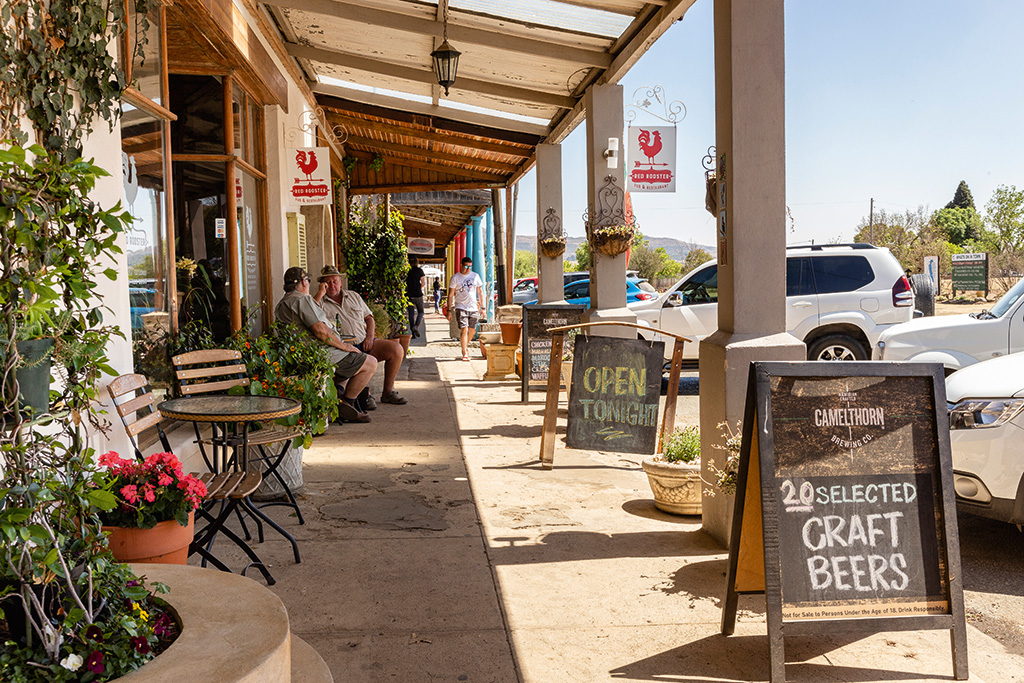
Locals catch up over a coffee or a drink on the stoep in front of the Red Rooster Pub & Restaurant in Badenhorst Street. Image credit: Mia Louw
2 Special outings
- September to March is the peak season for birding. The major drawcard is the endemic species that are restricted to SA’s high-altitude grasslands: Rudd’s and Botha’s lark, yellow-breasted pipit, blue korhaan, and southern bald ibis. There are four bird hides around the wetland.
- Crew (Custodians of Rare and Endangered Wildflowers) organises rare-flower outings monthly during the summer. After the first rains, flowers such as wild orchids, disas, pink nerines, and the Wakkerstroom geranium start to appear.
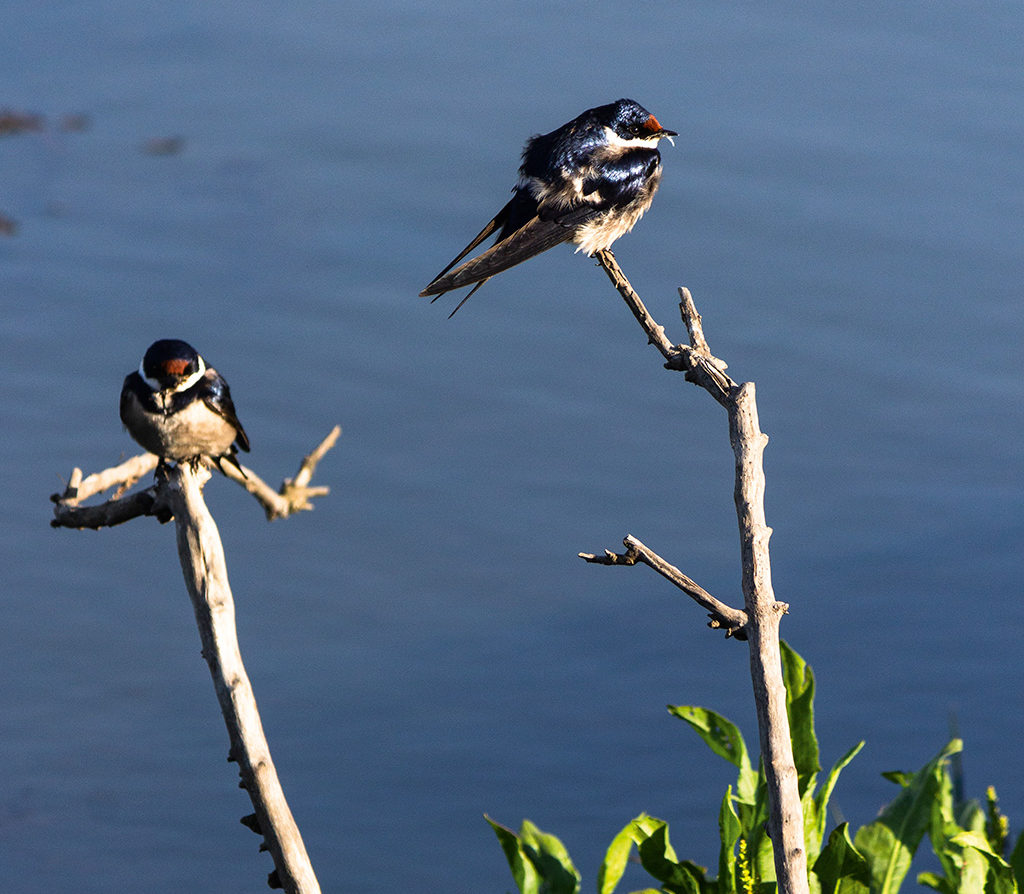
Image credit: Mia Louw
Where the locals go
- George Angus, pastor, said, ‘Drive to Zaaihoek Dam for pristine scenery and wonderful birdlife, but also carry on around the dam on the Groenvlei road to witness the curves of the Slangrivier in all its glory.’
- Vincent Makhathini, waiter, said ‘Come to the Wakkerstroom Hotel for a steak. We are open seven days a week, and all our meat comes from local farmers.’
Plan your trip
- Getting There
Wakkerstroom is 274 km south-east of Johannesburg and lies on the R543, near the border between Mpumalanga and KwaZulu-Natal.
Where to stay
- Forellenhof Guest Farm is 7 km out of town in a delightfully remote setting. There are three en-suite rooms and three spacious cottages with honesty baskets (wine, rusks, and jam). All have fireplaces. Pretty Pig sleeps four and overlooks a dam for birdwatching from your stoep.
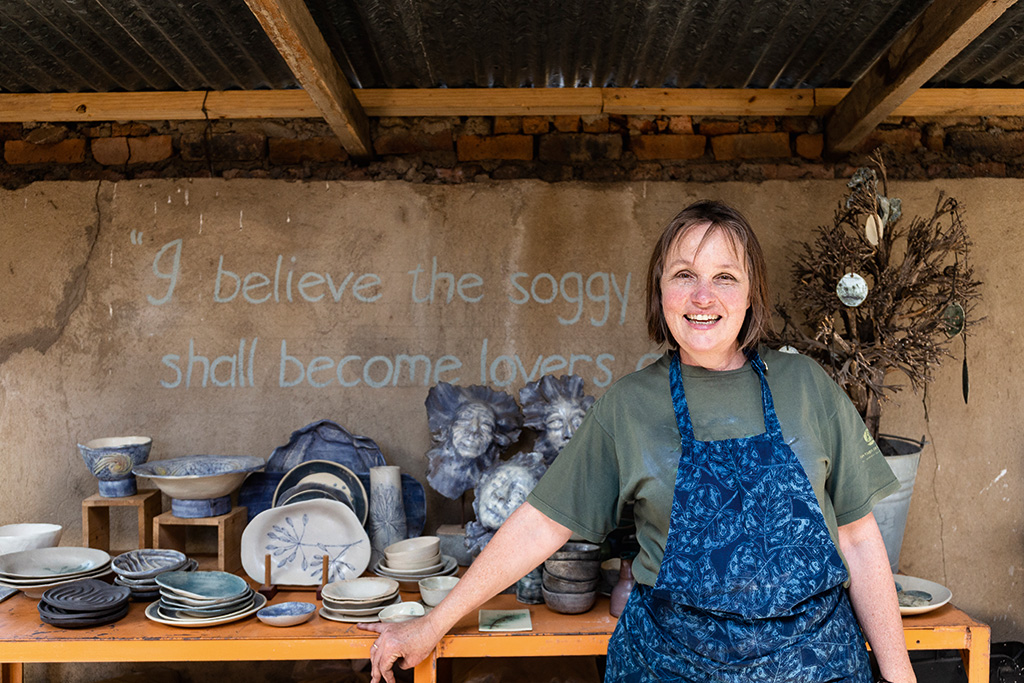
Matilda Angus with her pottery creations at The Restory Retreat Centre, tucked away in the Balele Mountains. The quote behind her, by Walt Whitman, reads: ‘I believe the soggy clods shall become lovers and lamps’. Image credit: Mia Louw
- Quince Cottages are in the centre of town, a short stroll from shops and restaurants. Tall trees surround the self-catering unit, and it has a chic country-style interior with an open-plan kitchen/dining/living area and fireplace.
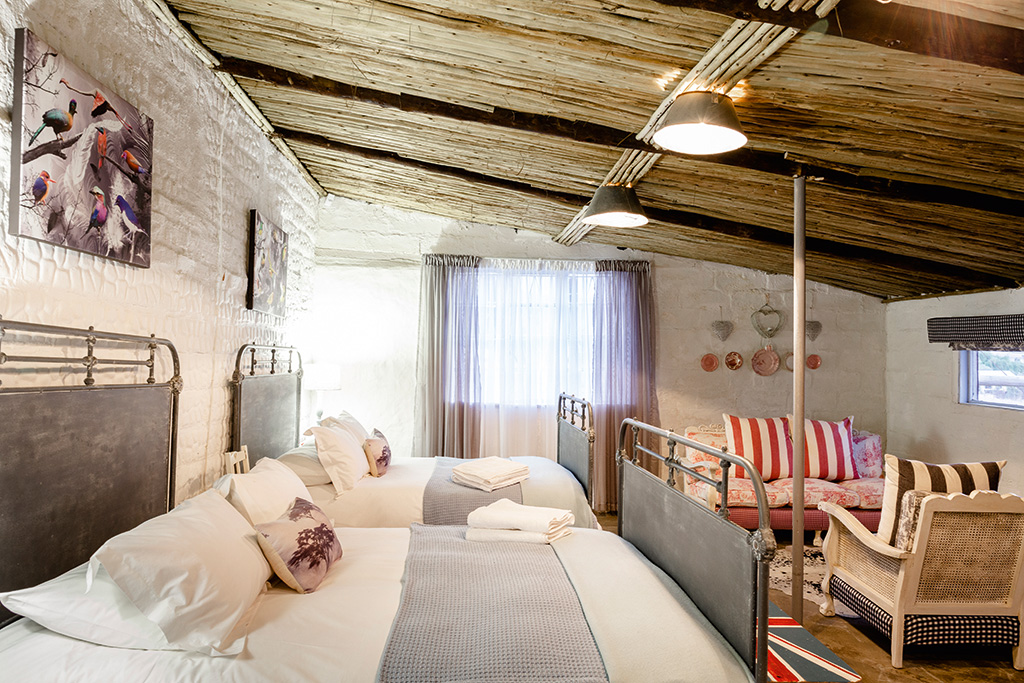
Pot & Gieter Guesthouse. Image Credit: Mia Louw
What to do
- Get out into nature: Pop into the town info centre at the Old Bioscope and pick up a Wakkerstroom Hiking Biking Running Guide. The longest MTB option is a 65 km circular route to Zaaihoek Dam; the walk to the summit of Ossewakop is 8.8 km.
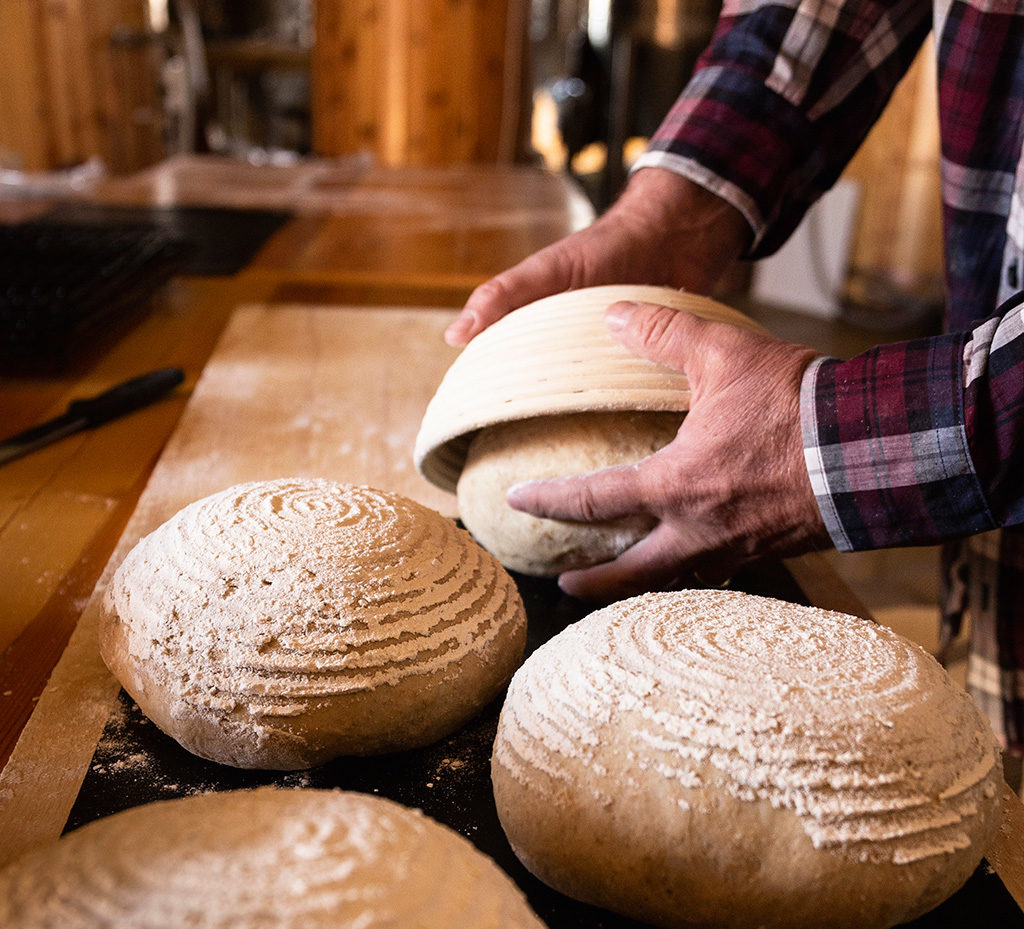
- Go birding: Grab your binoculars and head to the Wakkerstroom Wetland Reserve. Book a bird guide to access expert knowledge, hotspots, and private property.
- Make artisan bread: The fundamentals course at Country Bread is educational, informative, and fun. Plus, you get to eat a lot of bread.
- Play putt-putt: DeKotzenhof Guest House and Restaurant has a nine-hole course in the garden. The property also has a country farm stall, deli, and shop.
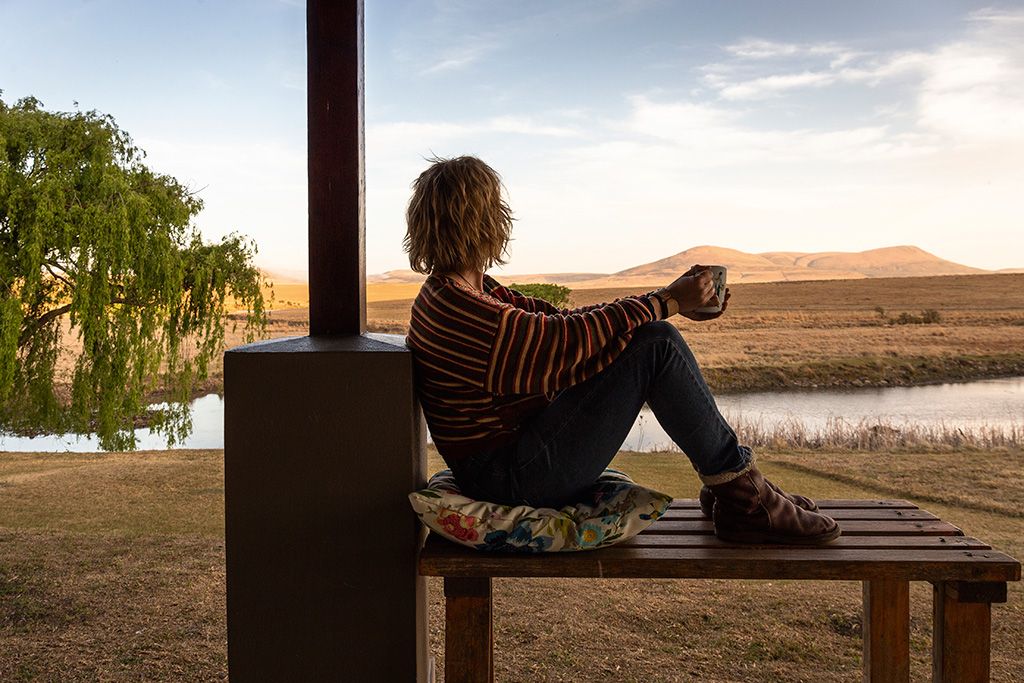
Forellenhof. Image credit: Mia Louw
- Admire the bearded irises: From September to April, visit the Runnymede Iris Farm in town, which has more than 150 varieties.
- Join the Art and Craft Ramble: At this annual festival, you’ll learn various new skills such as weaving, knitting, cake decorating, leatherwork, and more.
Where to eat
- Thyme Out offers elegant, French-influenced dining, and Jill Robertson makes you feel right at home with her quick wit. Try the wild mushroom risotto balls, grilled sole Véronique, with hand-made confectionery for dessert.
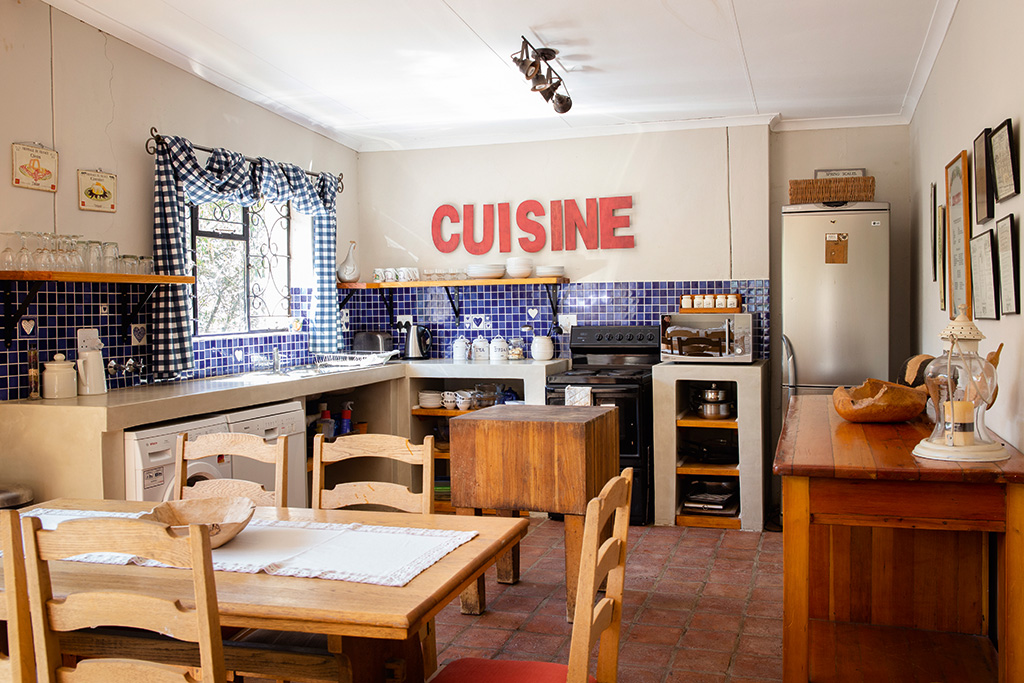
Apple Cottage. _Image credit: Mia Louw
- De Oude Stasie is 4 km out of town. Pop in for a Juicy chicken burger and chips, or a delicious fish and chips.
- Picnic in the wetland reserve, at Paul Kruger Bridge, or in a bird hide. Stock up at the Honeymoon Valley shop on farm-style cheeses and preserves – I recommend the flavoured gouda (smoked, rosemary, lavender, or mustard seed and chili). Suikerbekkie Bakery, just down the road, has fresh bread, pies, quiches, sweet treats, and more.
Follow us on social media for more travel news, inspiration, and guides. You can also tag us to be featured.
TikTok | Instagram | Facebook | Twitter
ALSO READ: Top 10 must-experience activities in Hartbeespoort
[ad_2]
Source link
Jarastyle – #Wakkerstroom
Courtesy : https://www.getaway.co.za/things-to-do/country-escape-things-to-do-in-wakkerstroom/

